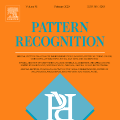This paper is about the meaning of understanding in scientific and in artificial intelligent systems. We give a mathematical definition of the understanding, where, contrary to the common wisdom, we define the probability space on the input set, and we treat the transformation made by an intelligent actor not as a loss of information, but instead a reorganization of the information in the framework of a new coordinate system. We introduce, following the ideas of physical renormalization group, the notions of relevant and irrelevant parameters, and discuss, how the different AI tasks can be interpreted along these concepts, and how the process of learning can be described. We show, how scientific understanding fits into this framework, and demonstrate, what is the difference between a scientific task and pattern recognition. We also introduce a measure of relevance, which is useful for performing lossy compression.
翻译:本文涉及在科学和人工智能系统中理解的含义。 我们给出了理解的数学定义, 与共同的智慧相反, 我们定义了输入集的概率空间, 我们把智能行为者的转变不视为信息丢失, 而是在新的协调系统框架内对信息进行重组。 我们根据物理再整顿小组的想法, 引入相关和无关参数的概念, 并讨论如何根据这些概念来解释不同的AI任务, 以及如何描述学习过程。 我们展示科学理解如何适合这个框架, 并展示科学任务与模式识别之间的区别。 我们还引入了一种相关性的尺度, 用于进行损失压缩。




